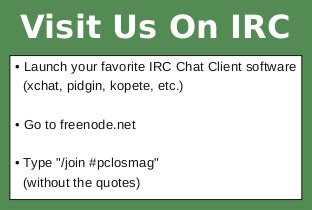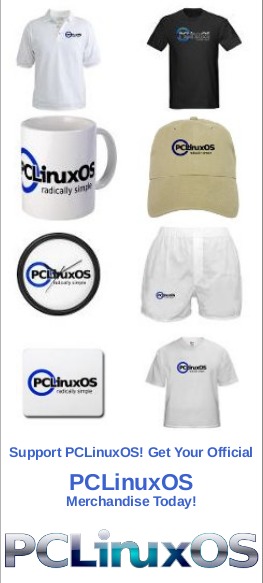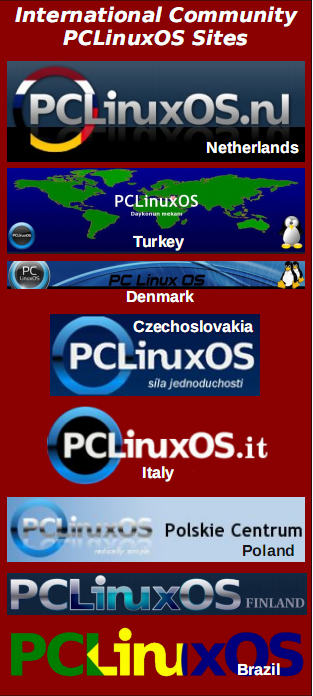| Previous
Page |
PCLinuxOS
Magazine |
PCLinuxOS |
Article List |
Disclaimer |
Next Page |
Refuse To Be Bullied: Say NO To Proprietary Software
|
|
Kevin Keijzer Shared via Google+ There are many valid reasons to reject proprietary software. Its potential risks are highly underestimated by many, and in today's day and age of computer technology, they pose a stronger threat than ever. Proprietary software shows no respect for the users' freedom. Users are not allowed to know what the software is doing on their own computers, nor are they able to modify it if they have the need to. All proprietary software users can do is "hope for the best". Proprietary software is not secure. You'll be left to the mercy of companies like Microsoft, Apple, and Adobe to have your interests at heart, of which you cannot be certain. Chances are that if fixing something will not generate enough income for them, it will not be done, even though it may pose a threat to your security. Proprietary software can not be trusted. As there is no way for you or anyone else to know what it is doing on your system, there is no way for you to be sure that it does not collect your personal data, record audio through your microphone, record video through your webcam, or monitor your keystrokes and log your passwords. All you can do is hope or assume that the vendor has not implemented anything like this, but you can never be certain of it.  Proprietary software keeps you from owning your possessions. After you have bought a piece of proprietary software, you do not own it, even though you paid for it. Therefore, the vendor will always remain in charge of everything you can or can't do. When an update removes certain functionality you may rely upon, there is no way for you to stop it. You will never be sure that your computer keeps working the way you expect it to, because proprietary software vendors are not interested in you, whatsoever. Proprietary software is able to control the programs you run and the files you use. Proprietary software vendors are able to disallow you to run certain pieces of software, such as Apple does with their application stores. Also, they can keep you from playing videos and music, for instance, because of the DRM technology built into the cores of the Microsoft Windows, Apple Mac OS, and Apple iOS operating systems. You are denied the right to use your computers, laptops, tablets, and phones for whatever cause you see fit. Proprietary software is able to lock you into closed standards. When you rely on a proprietary program, chances are it also uses proprietary file formats. These files are generally impossible to use with other (free) programs, unless developers reverse-engineer them, which might take years. Because of that, relying on proprietary file formats means you will be completely dependent on the vendor and the direction they choose to turn. Proprietary software has been pushed to become the standard. Due to extensive lobbying, primarily by Microsoft, many corporations have been led to believe that endorsing proprietary software is the right thing to do. Nearly everyone has grown up using proprietary software exclusively, without knowing they even had other options. Proprietary software has not become widespread by choice, but by force. Proprietary software prevents mankind from developing. Because you are unable to study the software running on your computer, you are not allowed to gain knowledge about it. It is in proprietary software vendors' interest that people know as little as possible about software and computers in general. This decreases the chance of more people developing or even installing free software, and it will keep the ecosystem of "valuable professionals" and "certified partners" up and running, abusing people's ignorance in order to make more money from them. Proprietary software makes the world a worse place. If all existing proprietary software would be open sourced, nobody would suffer in any way from it. In fact, it would only be better for everyone. The developers would be able to get help from all around the world, and get suggestions they might otherwise never have received. The users would have a product that is maintained by more people, and can be sure that at least someone will look for "evil" code that might be dangerous for their privacy, and remove it. The companies behind the software would reach a larger audience, and would more likely be able to provide paid support to a bigger user base. The quality, security and efficiency of the software and the user experience will only benefit from being free (as in freedom). The other way around, things would be completely different. If all currently free software would become proprietary, every single aspect of it would become worse. The developers would lose 90% of their 'colleagues' and be forced to work the way the suits tell them. The users would no longer be certain that the programs they are using are not abusive, and will be forced to pay money for something they might not be able to afford. The companies would only see a decline in quality of service and user count, unless they are capable of pulling off an ongoing worldwide scam like Microsoft and Apple have succeeded in doing. I am sure you believe there are plenty of advantages to proprietary software. But that does not change anything about the fact that it is always morally wrong. Feel free to use it as you wish, but please do not try to convince others to do the same. Convincing people to harm themselves and others around them is a terrible thing to do. You can call me paranoid as much as you want, but I simply refuse to believe that the CEOs of multi-billion dollar companies will "do no harm." Only a fool would feel that way. |






